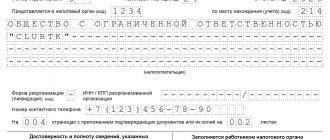What are local regulations, who needs them and why?
The concept of what local regulatory acts of an organization (LNA) are is given in Art. 8 Labor Code of the Russian Federation. These are documents accepted by the employer, containing labor law norms, rules for their implementation and regulation of labor relations within the enterprise. The main requirement for the LDF is not to worsen the situation of workers, as established by law. Signs of a local regulatory act:
- determines the implementation of federal laws in a specific organization;
- acts between the employees and the employer of the company;
- applies to all employees;
- not designed for one-time use - used periodically;
- improves the position of employees and expands the basic level of protection compared to current standards;
- is adopted taking into account the opinion of the representative bodies of workers.
Well-designed local acts help resolve controversial situations.
Recommendations from ConsultantPlus (free access)
Guide to HR issues. The procedure for developing and approving local regulations of the organization
Contents of orders concerning employees
Orders are a tool for regulating relations between employees and the employer. They are formed in the presence of these circumstances:
- Getting an employee a job or terminating an employment agreement.
- Going on vacation.
- Going on a business trip.
Orders concerning employees are filled out according to the approved form. Their content is divided into 2 parts: introductory and administrative.
Introductory part
The introductory part sets out the goals and objectives of the new regulations. That is, an explanation is provided for the decisions made. If this is an order adopted in pursuance of government regulations, the introductory part indicates the number of this order, date and title.
Administrative part
The beginning of this part is the phrase “I command.” After this, you need to record your orders. You can create a numbered list for ease of presentation. The deadline for the execution of orders is either set for each item separately, or placed in a separate item. A separate paragraph also contains a list of employees responsible for implementing the provisions of the order.
What regulatory documents are being developed in LLCs and individual entrepreneurs?
There is no legally approved list of local acts. The Labor Code mentions certain LNAs and considers them mandatory:
- internal labor regulations - Art. 189 – 190 Labor Code of the Russian Federation;
- on wages and bonuses - Art. 135 Labor Code of the Russian Federation;
- vacation schedule - Art. 123 Labor Code of the Russian Federation, letter of Rostrud No. 4414-6;
- establishing the procedure for processing personal data Art. 86, paragraph 8, art. 87 Labor Code of the Russian Federation;
- shift schedules, if they are not an appendix to the collective agreement - Art. 103 Labor Code of the Russian Federation;
- staffing table - Rostrud letter No. PG/4653-6-1.
What other local acts are mentioned in the Labor Code:
- rules and instructions on labor protection - Art. 212 Labor Code of the Russian Federation;
- on labor standardization - Art. 159 Labor Code of the Russian Federation;
- certification procedure - art. 81 Labor Code of the Russian Federation.
IMPORTANT!
Local regulations state when there is a need to resolve a situation that has arisen as a result of the company’s activities. Such LNAs are not mandatory - they are developed at will, if the situation is typical for the specific activities of an LLC or individual entrepreneur.
How, for how long and where to store internal documents
Registration and storage
The storage period for administrative documents on the main activities of the company is regulated at the legislative level. It is different for each type. All of them must be filed in the files and kept in the preschool educational institution service. If we are talking about personnel orders, then in this case it is necessary to ensure safety for 75 years. The company's HR department works with them. In cases where copies of administrative documents are sent to departments for notification purposes, they are stored for at least one year or longer, if necessary.
The creation, distribution and storage of administrative documents is an important part of the organization’s work. It must be carried out in accordance with established rules and regulations.
What other management documents are there you will learn from the video
Specialized LNA
In addition to the general ones, there is a list of mandatory LNAs applicable to industries. For example, the system of assessment activities in educational institutions. Its mandatory nature is determined by the law on education in the Russian Federation. Each educational institution independently develops its parameters, guided by the list of local acts that regulate VSOKO:
- No. 273-FZ;
- federal program “Development of Education for 2016-2020”;
- Order of the Ministry of Education and Science No. 462 dated June 14, 2013;
- Order of the Ministry of Education and Science of the Russian Federation No. 1324 dated December 10, 2013.
Certain types of local regulatory documentation are used in quality management systems. An approximate list of quality documents is the following documents:
- information about the QMS;
- requirements and specifications;
- methodological developments, recommendations;
- standards, instructions;
- objective data about tests and results.
What set of title documents should an LLC have?
In the process of conducting any commercial activity, an organization uses a set of documents confirming the right to carry out certain actions. In the activities of an LLC, there are title and constituent documents, which are often confused with each other.
According to the Civil Code of the Russian Federation, the only constituent document of any legal entity is the Charter. It contains all the basic information about the activities of the organization, the interaction between its participants, the size of the authorized capital (AC), the equity participation of shareholders and much more. All other documentation about the organization is legal.
Title documentation is a type of mandatory paper with the help of which an organization obtains the right to carry out its activities and on the basis of which powers are assigned to participants in the organizational process.
The process of creating title documentation requires the participation of all members of the organization, who must approve and sign the following documents:
- The decision to create an LLC. It is adopted at a general meeting, where all founders with the right to sign and vote must be present. At the meeting, a vote is held to determine the specifics of the future activities of the LLC. Here the size of the management company is determined, the amount of contributions made by each founder, the Charter of the LLC is determined, a director and an official authorized to register the company with state authorities are appointed.
- Agreement for establishing an organization. According to it, the share participation of each founder is outlined, and his rights and obligations in the process of carrying out commercial activities are determined. A separate paragraph may prescribe in it the rules of action when one of the founders leaves the organization and the process of repurchasing its shares by other participants or third parties.
- Application for registration. The application is drawn up in form No. P110011, and must comply with the norms of the Federal Tax Service of the Russian Federation. The application must include the KVED codes that will correspond to the areas of the enterprise’s activities. If the application is completed incorrectly, registration will be denied.
Based on these documents, LLC registration is carried out. However, that's not all. Legal documentation also includes:
- certificate of registration of LLC as a legal entity;
- certificate of registration with the Federal Tax Service;
- certificate of registration with the Pension Fund of the Russian Federation;
- papers on registration with Social Security and Medical Insurance funds;
- certificate confirming the introduction of changes to the register of legal entities (if any);
- documents confirming the formation of the authorized capital;
- additional documents for carrying out activities: certificates, licenses, issued shares;
- documents on the property of the enterprise;
- extracts from Rosstat;
- Decision and Order on the appointment of the general director of the LLC, indicating his powers and responsibilities.
Upon receipt of any copies or restoration of papers, they also become the basis of title documentation mandatory for the activities of the LLC.
The procedure for organizing the activities of an LLC is regulated by Article 12 of the Law on LLCs.
The list of constituent documentation necessary for the activities of an LLC is established by Article 52 of the Civil Code of the Russian Federation.
How to properly develop, approve, agree
- Who develops it? The specialists responsible for the development of LNA are identified and approved by the manager.
- Development. It is written from scratch or a standard document is taken as a basis, into which the necessary adjustments are made to suit the specifics of a particular organization.
- Coordination. The project is coordinated with specialized departments and lawyers. If required by a collective agreement, with a trade union. Certain documents require mandatory approval from employees - for example, a vacation schedule. During the approval process, changes and adjustments are made to the project.
- Statement. The agreed document is submitted to the manager for signature.
- Familiarization. The approved LNA is handed over to employees for reading. The method of indicating the number and list of employees in local regulations for review and signature is chosen by the developers themselves. If there are few employees, an introductory sheet is attached at the end of the document; if the organization is large, a separate journal is drawn up. All employees are familiarized with documents of a general nature; if the LNA is of a specialized nature, those who are directly related to the activities regulated in the document.
Is it necessary to familiarize employees with documents?
Not all LNA require mandatory familiarization. says that it is necessary to familiarize workers with those regulatory documents that are directly related to work activities. For example, a business trip clause is not signed by a person who does not travel anywhere.
Rostrud’s letter No. PG/4653-6-1 states that the staffing table relates to LNA, but is not directly related to activities. Thus, it is not necessary for employees to be familiar with it.
IMPORTANT!
Some features of familiarization with the regulatory documents of the enterprise are established in the collective agreement or other legal regulations.
Orders on wages and personnel:
• About hiring; • On dismissal by agreement of the parties; • Dismissal due to the end of the contract; • Dismissal due to termination of a contract with preliminary testing; • Dismissal due to appearing at work while intoxicated; • About dismissal for absenteeism; • On suspension from work; • On granting leave; • On payment of compensation; • On postponing leave due to illness; • On the establishment of irregular working hours; • About changes in the staffing table; • About transfer to part-time work; • About bonuses; • On the imposition of disciplinary sanctions; • About transfer to another position; • On deduction of the cost of the work book from wages; • On the withholding of alimony; • On provision of parental leave; • About changing the surname;
Responsibility for absence
The responsibility for developing LND lies with both the LLC and the individual entrepreneur. Liability for lack of documentation is regulated by clause 1 of Art. 5.27 of the Code of Administrative Offenses of the Russian Federation - violation of legislation and other regulations that contain labor law norms. If an enterprise does not have a provision on the protection of personal data, liability may arise, including criminal liability.
There is a category of employers exempt from LNA: individuals and owners of micro-enterprises. The latter include the conditions that are prescribed in the LNA in the text of the employment contract. They enter into standard agreements, the form of which is approved by the government.
Legal documents
- Art. 8 Labor Code of the Russian Federation
- Art. 189
- 190 Labor Code of the Russian Federation
- Art. 135 Labor Code of the Russian Federation
- Art. 123 Labor Code of the Russian Federation
- Rostrud letter No. 4414-6
- Art. 86
- Art. 87 Labor Code of the Russian Federation
- Art. 103 Labor Code of the Russian Federation
- Art. 212 Labor Code of the Russian Federation
- Art. 159 Labor Code of the Russian Federation
- Art. 81 Labor Code of the Russian Federation
- No. 273-FZ
- Order of the Ministry of Education and Science No. 462 of June 14, 2013
- Order of the Ministry of Education and Science of the Russian Federation No. 1324 dated December 10, 2013
- Art. 5.27 Code of Administrative Offenses of the Russian Federation









